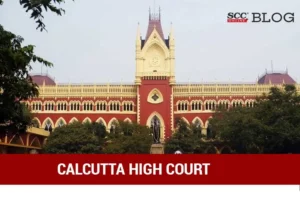Calcutta High Court: In a criminal revision seeking quashment of entire proceedings along with the complaint due to failure on part of the Magistrate to conduct an inquiry under Section 202 of the Criminal Procedure Code, 1973 (CrPC) before issuing process against accused persons residing outside his jurisdiction, a single-judge bench comprising of Rai Chattopadhyay,* J., emphasised on the mandatory nature of Section 202 of the CrPC and set aside the orders of the Magistrate, directing the case to be remanded for due compliance with the law.
Brief Facts
In the instant matter, the complainant responded to an advertisement in ‘The Statesman’ in 1989 for investment in M/s. Everest and an unsecured loan from Sencose. An agreement was executed in 1991 for investments by the complainant with the accused companies. The complainant alleged deceitful inducement and illegal transfer of hypothecated fixed deposits and company shares by the accused companies, causing financial loss and misappropriation. The petitioners sought quashing of the entire proceedings along with the complaint, alleging misappropriation of valuable securities and illegal transfer of funds by the accused companies and their directors. The criminal revision cases are heard together challenging the complaint dated 31-12-2009, registered as complaint case under Sections 420,467,468 and 471 of the Penal Code, 1860 (IPC).
Moot Point
-
Whether the Magistrate erred in not conducting an inquiry under Section 202 of the CrPC before issuing process against the accused residing outside the jurisdiction?
Parties’ Arguments
The petitioners argued that the Magistrate failed to comply with Section 202 of the CrPC, rendering the orders illegal. The complainant-opposite party contended that the Magistrate had adequately inquired into the genuineness of the complaint, justifying the issuance of process.
Court’s Assessment
The Court reviewed the orders passed by the Magistrate and stated that explicit compliance with Section 202 is not evident. The Court stated that “the necessary requirement for the Magistrate to comply with the said provisions under Section 202 of the CrPC would be his satisfaction and finding it fit regarding the necessity to cause an enquiry as provided therein and mandatorily in a case, where the accused is residing beyond the area of territorial jurisdiction of the said Magistrate.” Citing precedents, the Court emphasised on the mandatory nature of Section 202 of the CrPC in cases where the accused reside beyond the Magistrate’s jurisdiction.
The Court stated that “when the legislature provides for a mandate for the Magistrate to postpone the process for the purpose of causing inquiry and with a specific purpose, as written herein above, it is incumbent that the orders of the Magistrate explicitly show that the statutorily provided and mandated process has been undertaken by him. It is also expected that the Magistrate records his finding of the inquiry vis-à-vis the purpose of the said provision of law” and anything otherwise done by the Magistrate will not be considered as due exercise of the power vested in law and would render “Magistrate’s action as dehors the law and not sustainable.” The Court held that the orders of the Magistrate suffered from illegality for not causing an inquiry under Section 202 of the CrPC and order directing issuance of summons and subsequent orders are unsustainable in the eye of law.
Court’s Decision
The Court set aside the orders directing the issuance of summons, remanding the case to the Magistrate for due compliance with the law. The Court directed the Magistrate to conduct an inquiry under Section 202 of the CrPC before proceeding with the case.
[Aloka Gooptu v. State of W.B., 2024 SCC OnLine Cal 943, order dated 02-02-2024]
*Judgment by Justice Rai Chattopadhyay
Advocates who appeared in this case :
Mr. Ayan Bhattacherjee, Mr Ayan Chakraborty, Mr. Sudipta Mahapatra, Counsel for the Petitioners
Ms. Kakali Samajpaty, Ms. Sangita Jangra, Mr. Subhranil Ray, Counsel for the Opposite Party 2


